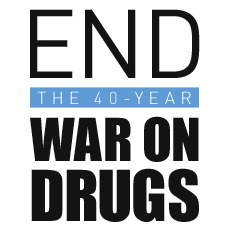
June 2011 marks the 40th anniversary of President Richard Nixon's declaration of a "war on drugs" — a war that has cost roughly a trillion dollars, has produced little to no effect on the supply of or demand for drugs in the United States, and has contributed to making America the world's largest incarcerator. Throughout the month, check back daily for posts about the drug war, its victims and what needs to be done to restore fairness and create effective policy.

Click to view full-size graphic
ACLU Unveils Mass Incarceration Infographic
Today marks the 40th anniversary of the day President Richard Nixon declared the “war on drugs,” a failed and unfair war that has helped make the U.S. the nation’s largest incarcerator. Check out some startling statistics about America’s addiction to incarceration, and then share with your friends! (Download the graphic here »)
Citing the total failure of the present global antidrug effort, and in particular America’s "war on drugs," which was declared 40 years ago today, former president Jimmy Carter calls on the U.S. to make drug policies more humane and more effective.
This new issue of Reason magazine is devoted to a "cost-benefit analysis" of our criminal justice system — ultimately concluding that its brokenness is inextricable from our severe drug policies. As the introduction states, "The drug war is a leading supplier to the prison industry and the biggest inspiration for new ways to circumvent the Fourth Amendment."
As the rate of arrests for marijuana possession soars in New York City, lawmakers and community members are questioning how these charges might negatively impact the young people most often stopped. Under Mayor Michael M. Bloomberg, these numbers have exploded — and the mayor is resistant to challenges to his support of these practices.
According to the National Review's Jeffrey Miron, if the Tea Party abides by its principles of fiscal responsibility, constitutionally limited government and free markets, then its stance on drug prohibition should align with that of the Libertarian Party. Drug prohibition, he argues, is not a fiscally responsible policy.
Law Enforcement Against Prohibition, or LEAP, released a report this week denouncing the war on drugs, calling out the Obama administration for failing to end the battle despite Obama’s claimed intentions.
Mexican poet Javier Sicilia is leading the "Citizens Caravan for Peace with Justice and Dignity" throughout his country and into Texas, hoping to raise awareness of the devastating effects of the drug war on Mexican citizens. In Texas, he pled with American activists: "The United States and the silence of its citizens have imposed a war on us to stop something you consume, drugs."
Learn more about the war on drugs: Sign up for breaking news alerts, , and .
